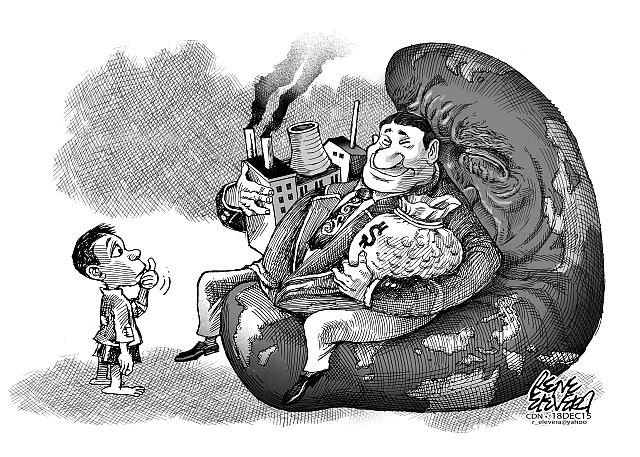The recently concluded climate change conference in Paris, France, known as the 21st Conference of Parties (COP21), may not draw praise from environmental groups who said the agreement signed by the world’s nations was inadequate.
But First World countries have to start someplace in their efforts to curb pollution levels that threaten to raise global temperatures above two degrees and cause the polar ice caps to melt. If this happens, floods may sweep through cities and create new landscapes while wrecking all sorts of devastation.
At the heart of the agreement is the global target to reduce the rise in global temperature to 1.5 degrees Celsius below pre-industrial levels.
As reported in the Associated Press article “Winners and losers in the Paris climate pact”, First World nations were big on talk but failed to follow it up with more definite commitments that will ensure compliance on the agreement to reduce carbon emissions by 2050.
Critics of China, the leading producer of greenhouse gases, cite the haze blanketing the country at the start of the Paris conference as a form of divine justice at work.
It’s not only China to blame for large-scale pollute. Other First World economies like the United States and the European Union still fell short of mobilizing global support for a “high ambition coalition” committed to achieving the 1.5 degrees reduction.
While the rest of the world debates about whether the pact will make a difference in the long term, the Philippines is one of the most vulnerable nations.
The Philippines produces less than 1 percent of the world’s greenhouse gases but, as dramatically shown by Supertyphoon Yolanda in 2013, is a victim of the new normal of calamities caused by climate change.
Instead of apportioning blame to the wealthy economies, everyone who’s a citizen of Earth should do one’s part to keep it a safe habitat.
Our few remaining forests are not engulfed in fires and exporting haze, but motor vehicles continue to add to urban traffic, spewing exhaust in the air at an unstoppable rate. Limiting car rides is a personal choice.
We have to shift to fuel-efficient mass transportation and rein in a culture that worships big, fast cars and looks down on bicycles.
The growth of coal-burning power plants provides cheap, baseload electricity but fouls the air with sulphur dioxide, carbon, dioxins and other poisons. Switching off unused lights and appliances at home and the workplace is a personal choice as well.
Mandaue City will soon launch bicycle lanes, which we hope encourages pedestrianization of streets in the core of the city. Cebu City has to wake up and execute its Tindak Sugbo lanes ordinance.
We have enough ordinances that call for building water cisterns, segregating garbage and national laws that ban the destruction of trees and open dumpsites. What we lack is the will to comply and the sense of urgency.
While change doesn’t happen overnight, we’ve waited too long to get started in the broadest way possible. When El Niño goes full blast in early 2016, those who think there’s still time to waste will see that’s sadly no longer the case.
Disclaimer: The comments uploaded on this site do not necessarily represent or reflect the views of management and owner of Cebudailynews. We reserve the right to exclude comments that we deem to be inconsistent with our editorial standards.

